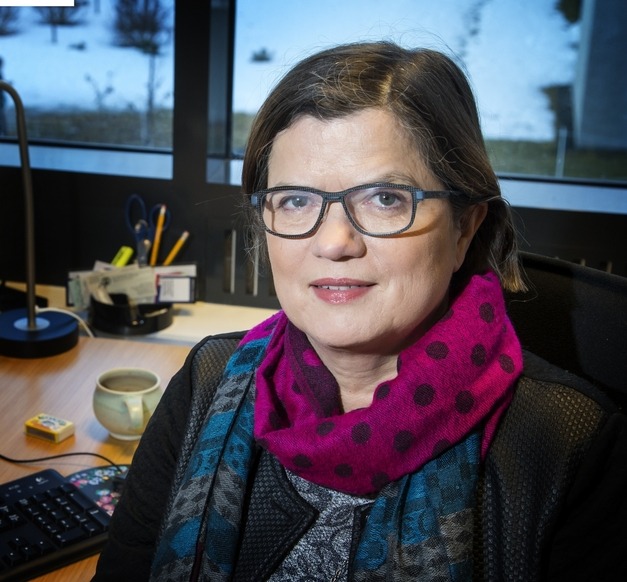Unnur Dís Skaptadóttir, professor at the Faculty of Social and Human Sciences
"The research discusses the experience and outlooks of Filipinos in Iceland and how they maintain links with their families in their county of origin." Unnur Dís Skaptadóttir, professor of anthropology, here discusses her recent research which she says is highly valuable for Icelandic society "since it addresses a group which is often subject to generalisations and prejudice in Icelandic society, for example based on stereotypes about Asian women."
The research was conducted in Reykjavík and two other locations in Iceland and involved participant observation and interviews. Unnur Dís also visited the Philippines twice for the purposes of this research.
Unnur Dís Skaptadóttir
"Travelling to the Philippines and talking to the relatives of people who live in Iceland, people who receive money sent from Iceland, talking to young women studying nursing in the hopes of moving abroad – all this provides not only an insight into how connections with the homeland are maintained, but also into the strong interest that Filipinos in Iceland have in creating a better life not just for themselves but also their relatives in the Philippines who rely on them."

Unnur Dís has been researching the subject of immigrants in Iceland for over a decade and several years ago she realised the importance of focusing specifically on the experience of Filipinos, since they are one of the largest immigrant groups in Iceland. "They are by far the largest group of immigrants from Asia," says Unnur Dís.
According to her, the results show that Filipinos in Iceland are an incredibly diverse group coming from different islands in the Philippines and speaking different native languages. This contradicts many people's preconceptions. "Most of them have adapted well to Icelandic society and managed to build good lives for themselves. A large proportion of them are well-educated, but make limited use of their education in Iceland," says Unnur Dís, adding that many of them considered working abroad when selecting their fields of study. "For example, many Filipinos work as nurses or in other positions within the healthcare system."
Unnur Dís says there are even examples of Filipino women who take part in development and social works in their country of origin.
Unnur Dís says that this research represents a contribution to the academic discourse on migration, transnational connections and the development of a multicultural society. "The research also contributes to the academic discourse on access to and exclusion from Icelandic society and manifestations of racism. Travelling to the Philippines and talking to the relatives of people who live in Iceland, people who receive money sent from Iceland, talking to young women studying nursing in the hopes of moving abroad – all this provides not only an insight into how connections with the homeland are maintained, but also into the strong interest that Filipinos in Iceland have in creating a better life not just for themselves but also their relatives in the Philippines who rely on them."


